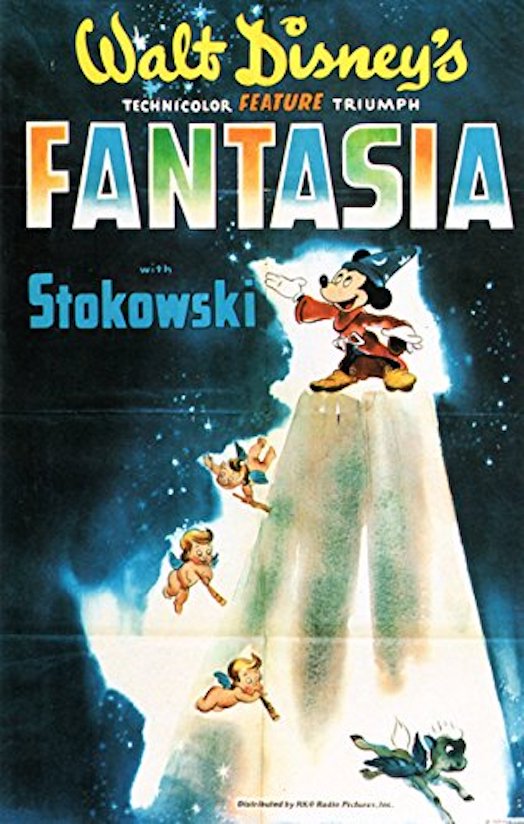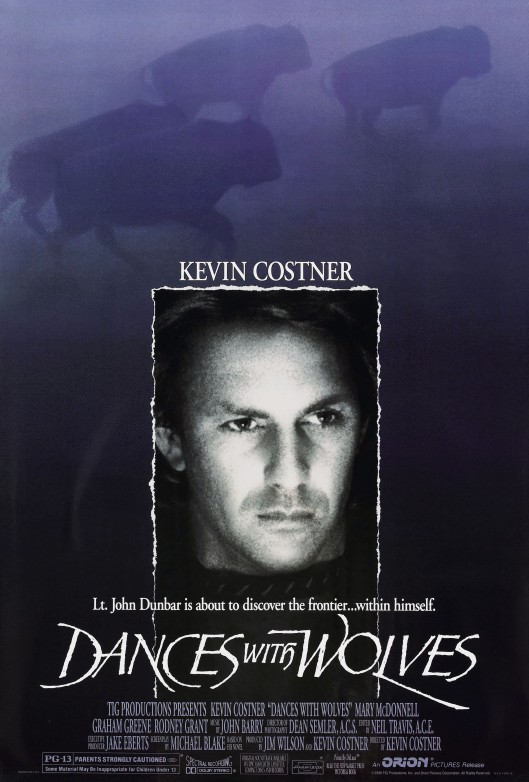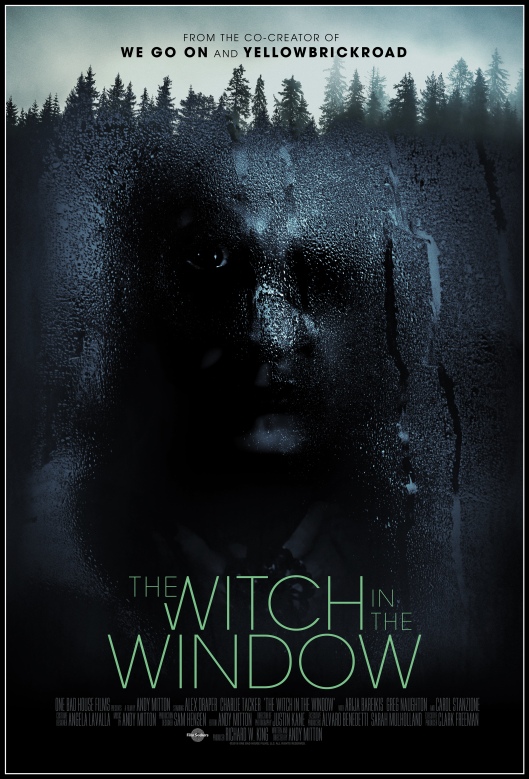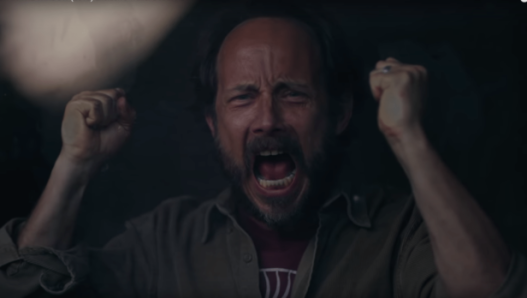Tags
Animation, Classical music, Comedy, Dance, Disney, Drama, Fantasy, Favourite movie, Leopold Stokowski, Mickey Mouse, Review
D: James Algar, Samuel Armstrong, Ford Beebe Jr, Norman Ferguson, David Hand, Jim Handley, T. Hee, Wilfred Jackson, Hamilton Luske, Bill Roberts, Paul Satterfield, Ben Sharpsteen / 125m
With: Deems Taylor (narrator), Leopold Stokowski
Viewing Fantasia nearly eighty years after its release, it’s astonishing to think just how much of a gamble this was for Disney. Borne out of a desire to boost the popularity of Mickey Mouse, Disney began work in 1936 on a deluxe cartoon short featuring Mickey called The Sorcerer’s Apprentice, but as the budget increased beyond its original expectations, Walt Disney realised that on its own, the short wouldn’t be profitable. In 1938, the decision was made to create a feature length movie that would include not only The Sorcerer’s Apprentice, but seven other animated sequences based on well known pieces of classical music. With conductor Leopold Stokowski already on board as the movie’s musical director, Disney forged ahead with the kind of project that had never been done before – and until its belated sequel, Fantasia 2000 (1999), wouldn’t be attempted again. And this was only Disney’s third full-length animated feature. There’s no modern corollary for this; only the House of Mouse has made anything remotely like Fantasia, and perhaps it’s because there’s a very obvious reason: it’s that good.
It’s a perfect combination of music and visuals, each segment given its own unique style and presentation, and the animation is so beautifully in tune with the music that it’s easy to be drawn into the narratives and to be carried along by the emotions invoked by the music. Whether it’s a sense of wonder at the depiction of Earth’s beginnings as portrayed via Rite of Spring by Igor Stravinsky, or the fun to be had from the animal ballets of Amilcare Ponchielli’s Dance of the Hours, or even the menacing apparition of the devil Chernabog in Modest Mussorgsky’s Night on Bald Mountain, the combination of sound and vision is hugely impressive. It’s a movie where the range of the animators’ imagination is such that the viewer is taken to places they could never have expected, and shown sights that remain indelible once seen. Conceptually bold, and daring, the movie is a panoply of colour and sound that is transformative and vibrant, the music soaring and dipping in time with the imagery, at once urgent and demanding of our attention, at other times, subtle and intriguing, and on yet other occasions, sensitive and emotive, all of it providing a wellspring of extraordinary moments.
That it continues to hold up as well as it does – it is, after all, a masterpiece – should be no surprise. Disney was so confident in its ability to enthrall and amaze that he planned to re-release the movie every so often with a new segment replacing one of the originals each time. But poor box office returns (the movie didn’t turn a profit until its 1969 re-release), and the US entering World War II put paid to Disney’s plan. But even though a sequel was eventually made, Fantasia should be appreciated for being one of a kind, a movie no one else could have made except Disney, and one that continues to astound today, even with all the advances made in CG animation. It’s also quite obviously not a children’s movie – though they might enjoy Mickey’s antics and the dancing hippos – and this is another reason why it’s such an ambitious movie: it knows there’s an audience out there for it, and it trusts that people will find it and appreciate it. Again, whether it’s the abstract visual concepts employed for the opening Toccata and Fugue in D Minor by Johann Sebastian Bach, or the centaurian revels depicted in the mythical Greco-Roman world created for Ludwig van Beethoven’s Pastoral Symphony, Fantasia remains a fascinating, delightful, wonderful, and hugely effective exercise in exploring the boundaries of then-contemporary animation – and revealing the beauty of what’s been discovered beyond those boundaries.
Rating: 9/10 – the use of music is sublime, and so is the animation that accompanies it, and it’s this perfect melding of the two art forms that make Fantasia such an amazing and entertaining movie experience; breathtaking in its scope and ambition, it’s a movie that has never been bettered, and which stands even now as a testament to the visionary talents of its creator.






















































































































































